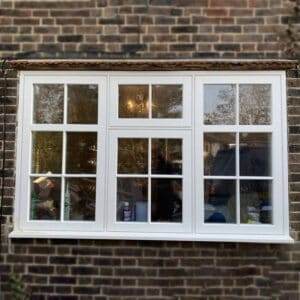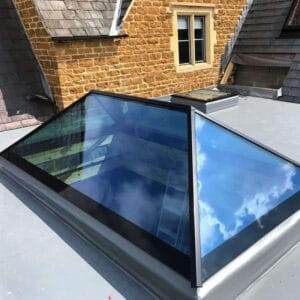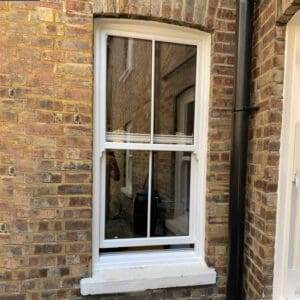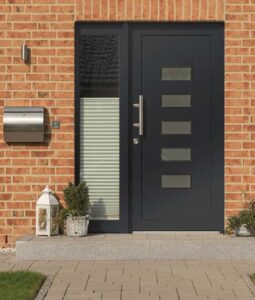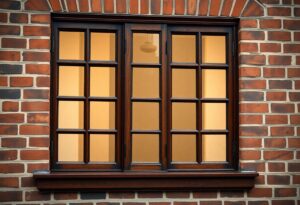Welcome to our informative blog post on preventing condensation issues in PVC windows. Condensation on windows can be a common and damaging problem, particularly in colder months, which can lead to issues such as mould growth, rotting window frames, and decreased insulation effectiveness. However, there are several key preventative measures that can be taken to avoid these issues and keep your PVC windows in optimal condition.
Key Takeaways:
- Proper installation: Ensuring that PVC windows are installed correctly can prevent condensation issues by creating a tight seal.
- Good ventilation: Adequate ventilation within the room can help reduce condensation on PVC windows by allowing moist air to escape.
- Use of dehumidifiers: Using dehumidifiers can help control humidity levels and prevent condensation from forming on PVC windows.
- Regular maintenance: Regularly inspecting and cleaning PVC windows can prevent condensation issues by ensuring that they are in good condition and free from obstructions.
- Humidity control: Controlling indoor humidity levels can significantly reduce the likelihood of condensation forming on PVC windows.
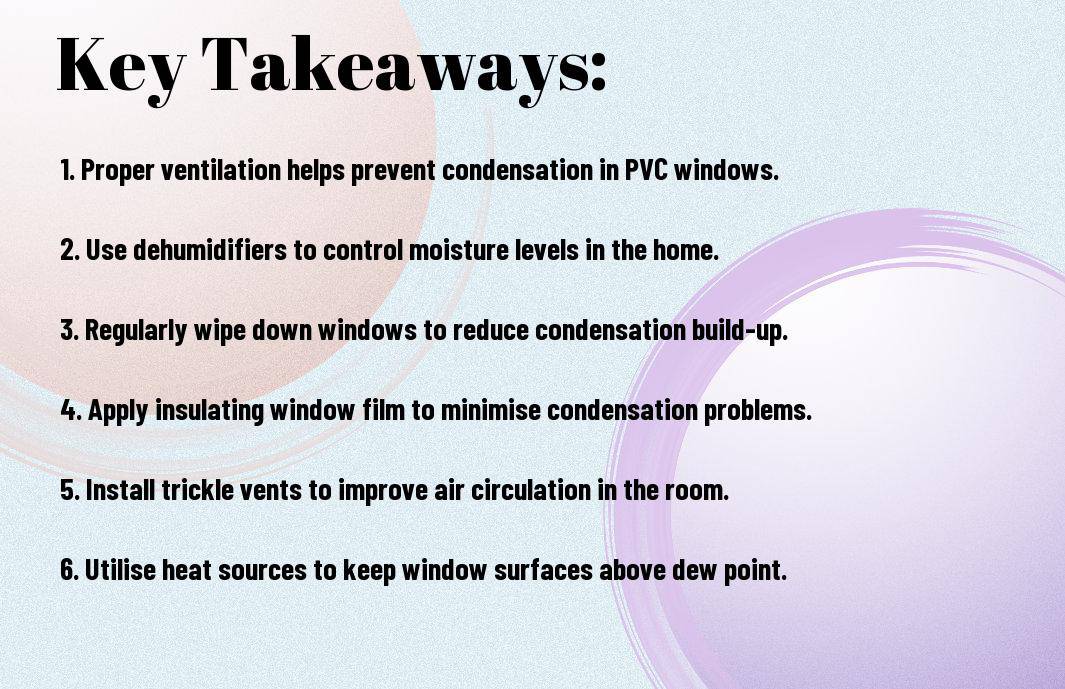
Understanding Condensation in PVC Windows
Condensation in PVC windows can be a common issue, especially in colder months. It can lead to a range of problems, including mould growth and damage to your window frames. How to Stop Condensation on Windows, Causes & Effects can help you understand more about preventing condensation issues.
What is Condensation?
Condensation is the process by which water vapour in the air transforms into liquid water when it comes into contact with a cold surface. In the case of PVC windows, this can occur when the warm, moist indoor air meets the cooler window surface.
Factors Contributing to Condensation in PVC Windows
Several factors can contribute to condensation in PVC windows, including high indoor humidity levels, poor ventilation, and low outdoor temperatures. These factors create the perfect environment for condensation to occur. A build-up of condensation can lead to mould growth, wood rot, and damage to interior décor.
- High indoor humidity levels create more moisture in the air.
- Poor ventilation prevents moist air from escaping.
- Low outdoor temperatures cause window surfaces to cool down, creating condensation.
Assume that if your home tends to feel stuffy and you see water droplets or frost on your windows, then condensation is likely occurring. It’s important to address these contributing factors to prevent damage and improve the comfort of your home.
Prevention Strategies
Preventing condensation issues in PVC windows requires a combination of strategies aimed at controlling moisture and improving thermal efficiency.
Proper Installation Techniques
Proper installation of PVC windows is crucial in preventing condensation issues. The use of high-quality sealants and ensuring a tight fit between the window and the frame can help reduce the likelihood of air leaks, which can lead to condensation. It is important to hire a professional installer who follows industry best practices to ensure the windows are fitted correctly.
Ventilation and Humidity Control
Proper ventilation and humidity control within the home are essential in preventing condensation on PVC windows. Installing and using extractor fans in kitchens and bathrooms can help remove excess moisture from the air, reducing the likelihood of condensation. Additionally, using a dehumidifier in particularly damp areas of the home can help maintain a healthy indoor humidity level.
Effective ventilation and humidity control play a crucial role in preventing moisture build-up on windows, ultimately reducing the risk of condensation-related issues such as mould and rot.
Window Maintenance and Care
Regular maintenance and care of PVC windows are essential in preventing condensation issues. Keeping the windows clean and free from debris and ensuring that the seals are intact can help prevent air leakage and moisture build-up. It is important to inspect the windows regularly and address any issues promptly to maintain their effectiveness in preventing condensation.
Proper maintenance and care of PVC windows are vital in ensuring their longevity and effectiveness in preventing condensation-related problems, ultimately creating a healthier indoor environment.
Insulation and Thermal Efficiency Upgrades
Improving the insulation and thermal efficiency of PVC windows can greatly reduce the likelihood of condensation issues. Upgrading to double or triple glazing, or adding insulating window films, can help reduce heat transfer and improve the overall thermal performance of the windows. This can help prevent the build-up of moisture on the interior glass surface, reducing the risk of condensation.
Investing in insulation and thermal efficiency upgrades for PVC windows can significantly improve their effectiveness in preventing condensation, resulting in a more comfortable and energy-efficient home.
Innovative Solutions and Products
Anti-Condensation Window Technologies
There are a number of innovative technologies available to prevent condensation on PVC windows. One of the most effective solutions is the use of insulating glass units (IGUs) with a low-e coating. This coating reduces the transfer of heat, helping to maintain a consistent temperature on the window surface and minimising the risk of condensation forming.
Another cutting-edge technology is the use of warm edge spacers in the window construction. These spacers provide better insulation and reduce the likelihood of cold spots where condensation may occur. By embracing these state-of-the-art technologies, it is possible to significantly reduce condensation issues in PVC windows.
Sealants and Weatherproofing Materials
When it comes to preventing condensation on PVC windows, the choice of sealants and weatherproofing materials is crucial. Advanced silicone-based sealants offer excellent adhesion and durability, providing an impermeable barrier to moisture. Additionally, the use of high-quality weatherproofing tapes can further enhance the waterproofing and thermal performance of the window installation.
By investing in these high-performance sealants and weatherproofing materials, homeowners can ensure that their PVC windows are well protected against condensation and moisture ingress. This proactive approach can help to maintain the longevity and energy efficiency of the windows, offering peace of mind for years to come.
For those looking to address condensation issues, it is crucial to invest in high-quality sealants and weatherproofing materials that offer superior protection against moisture ingress. By choosing advanced silicon-based sealants and weatherproofing tapes, homeowners can ensure the durability and effectiveness of their window installations. These solutions provide an impermeable barrier to moisture, reducing the risk of condensation and maintaining the longevity of PVC windows.
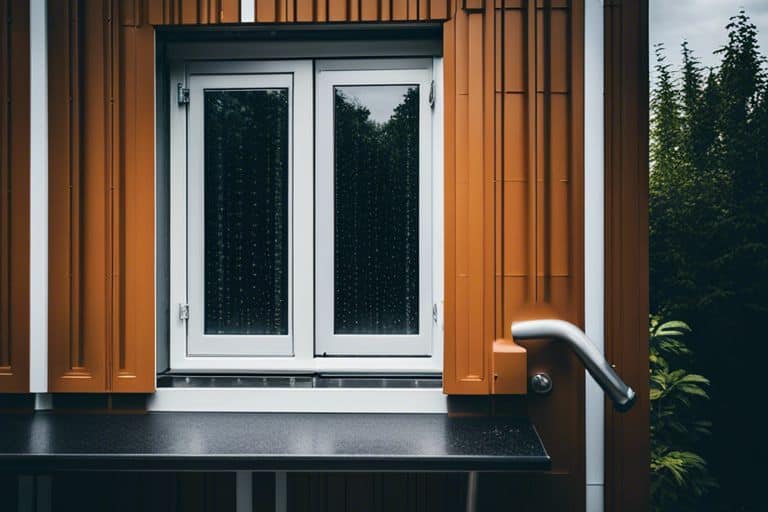
Case Studies
Below are a few case studies that demonstrate the impact of condensation on PVC windows:
- Case Study 1: In a residential property with double-glazed PVC windows, the condensation build-up led to mould growth and damage to the window frames. The residents experienced health issues due to the poor indoor air quality.
- Case Study 2: A commercial building with PVC windows suffered from condensation-related dampness and damage to the interior décor. This resulted in increased maintenance costs and a negative impact on the working environment.
For more information on the impact of condensation, you can also visit Will plastic on windows stop condensation?
Residential Applications
Condensation issues in PVC windows can have a significant impact on residential properties. The build-up of moisture can lead to mould growth, damage to window frames, and poor indoor air quality. It is essential for homeowners to address these issues to maintain a healthy living environment.
Commercial Building Examples
Condensation problems in PVC windows can also pose challenges in commercial buildings. The dampness and damage caused by condensation can lead to increased maintenance costs and a negative impact on the working environment. It is crucial for building managers to implement effective solutions to mitigate these issues.
It is important for commercial building owners to consider the long-term implications of condensation on PVC windows, including the financial impact and the potential health and safety concerns for occupants.
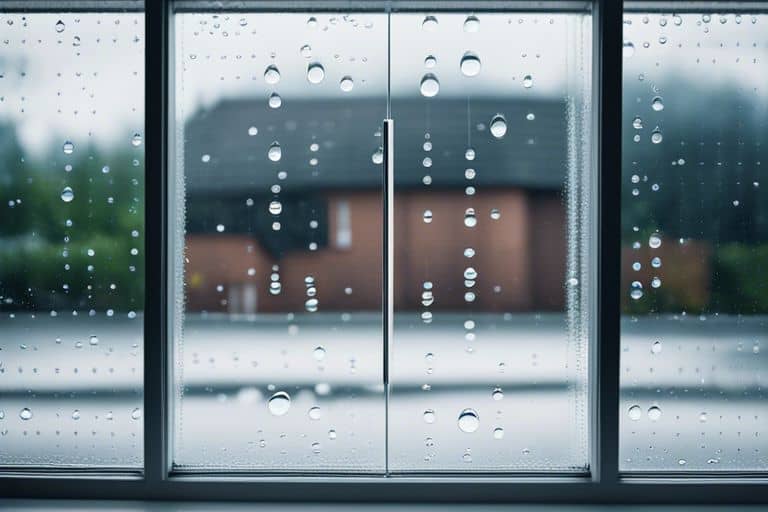
Preventing Condensation Issues in PVC Windows
In conclusion, preventing condensation issues in PVC windows is crucial for maintaining a comfortable and healthy indoor environment. By using proper insulation, ensuring adequate ventilation, and controlling indoor humidity levels, homeowners can effectively prevent condensation from forming on their PVC windows. It is important to regularly inspect and maintain windows to ensure they are in good condition and functioning properly. By following these preventative measures, homeowners can avoid the negative effects of condensation such as mould growth, deterioration of window frames, and potential health hazards. Ultimately, taking proactive steps to prevent condensation in PVC windows will not only protect the longevity of the windows but also contribute to a safer and more comfortable living environment.
FAQ
Q: What causes condensation in PVC windows?
A: Condensation in PVC windows is usually caused by high humidity levels or a significant difference in temperature between the inside and outside of the window.
Q: How can I prevent condensation in PVC windows?
A: To prevent condensation in PVC windows, ensure good ventilation in the room, use a dehumidifier, and maintain a consistent temperature within the space. Additionally, using insulating window coverings can help reduce condensation.
Q: Are there any maintenance tips to prevent condensation in PVC windows?
A: Regularly check and clean the weep holes and drainage channels of your PVC windows. This will help to ensure proper drainage and reduce the likelihood of condensation build-up.
Q: Can double glazing help prevent condensation in PVC windows?
A: Yes, double glazing can significantly reduce the occurrence of condensation in PVC windows by providing an additional barrier against temperature differences and improving insulation.
Q: Should I consider replacing my PVC windows to prevent condensation?
A: If your PVC windows are old or damaged, it may be worth considering replacement with newer, better-sealed windows to prevent condensation issues. Additionally, upgrading to energy-efficient windows can further help in controlling condensation.


